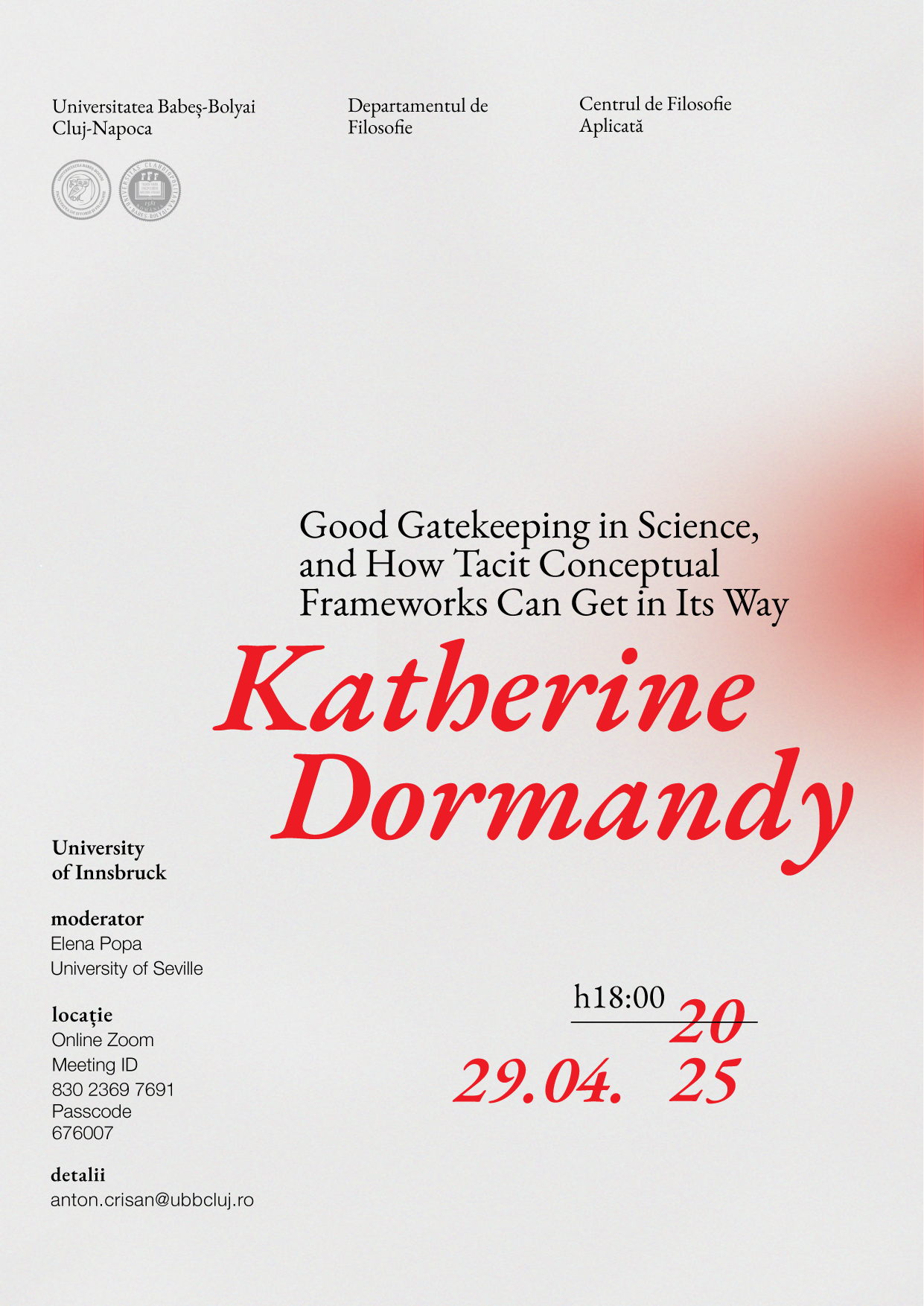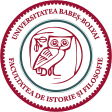29 aprilie 2025
Conferința Good Gatekeeping in Science, and How Tacit Conceptual Frameworks Can Get in Its Way, prof. dr. Katherine Dormandy
Facultatea de Istorie și Filosofie prin Departamentul de Filosofie și Centrul de Filosofie Aplicată vă invită la conferința Good Gatekeeping in Science, and How Tacit Conceptual Frameworks Can Get in Its Way susținută de către prof. dr. Katherine Dormandy (University of Innsbruck). Evenimentul va avea loc marți, 29 aprilie 2024, de la ora 18.00, pe platforma Zoom și va fi moderat de către dr. Elena Popa (University of Seville).
We are delighted to invite you to join the on-line talk Good Gatekeeping in Science, and How Tacit Conceptual Frameworks Can Get in Its Way by Prof. Katherine Dormandy (University of Innsbruck) on Tuesday, April 29, 6 p.m. EEST. The event is hosted by the Department of Philosophy/Centre for Applied Philosophy at the Babeș-Bolyai University of Cluj-Napoca, Romania. We are also glad to have Dr. Elena Popa (University of Seville) as chair.
Abstract and connection details below.
When science lives up to its own standards, it deserves special epistemic status. But what are these standards? And who is entitled to decide what they are in particular contexts, and which ideas, methods, theories, or even disciplines uphold them, and which don’t? These are questions of gatekeeping in science. Their answers are not straightforward. One reason is that they come from human beings (including scientists), who are prone to bias and plain error. Another is that science itself, whatever belongs inside or outside of it, is ideally the product of disagreeing viewpoints hashing things out together. I give an account of good gatekeeping in science. I then discuss one salient way in which gatekeeping in science can fail to be good. This occurs when the gatekeepers operate from a conceptual framework in which they are to a greater or lesser degree unwittingly entrenched. Entrenchment can happen for many reasons, such as tacit ideological commitments, implicit assumptions, or groupthink in the scientific community. When it happens, it can hinder good gatekeeping by making it difficult for gatekeepers to find the other views or methods plausible enough to take seriously, or even to understand them. I illustrate this problem with a recent debate from medical science about how to treat the chronic illness CFS/ME (chronic fatigue syndrome/myalgic encephalomyelitis). This example touches on themes for further research in the philosophy of medicine, including mind-body dualism, the biomedical model, and the evidential role of patient narratives in medical research.
Topic: Event Katherine Dormandy
Time: Apr 29, 2025 06:00 PM Bucharest
Join Zoom Meeting
https://us02web.zoom.us/j/83023697691?pwd=8uF8mD4cDeti0mtIB9R9W14Uj1QsSs.1
Meeting ID: 830 2369 7691
Passcode: 676007


